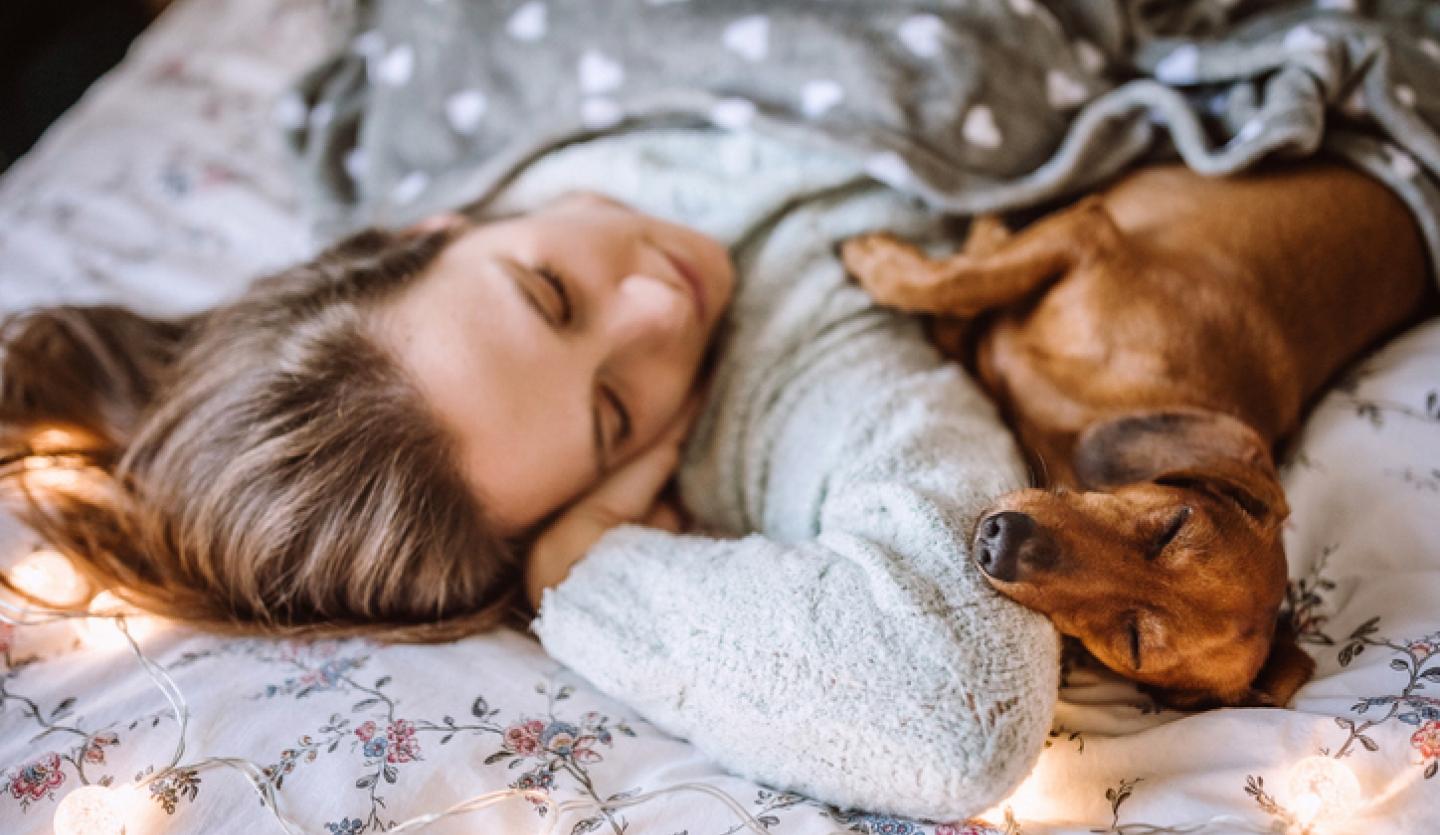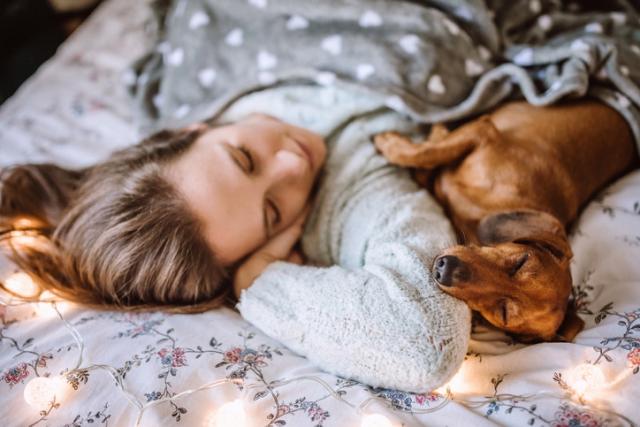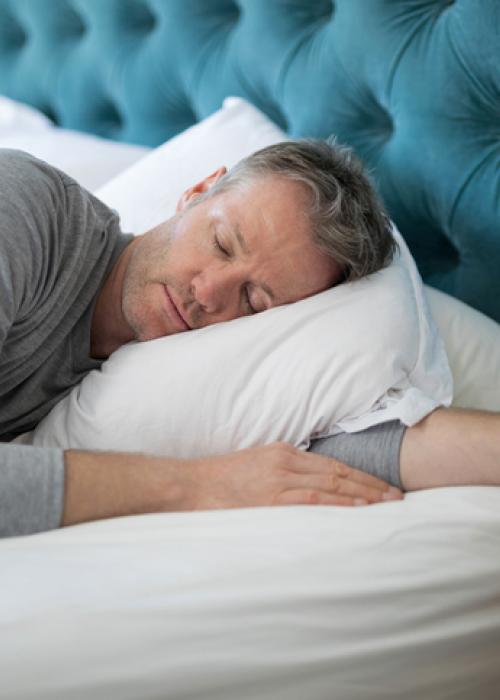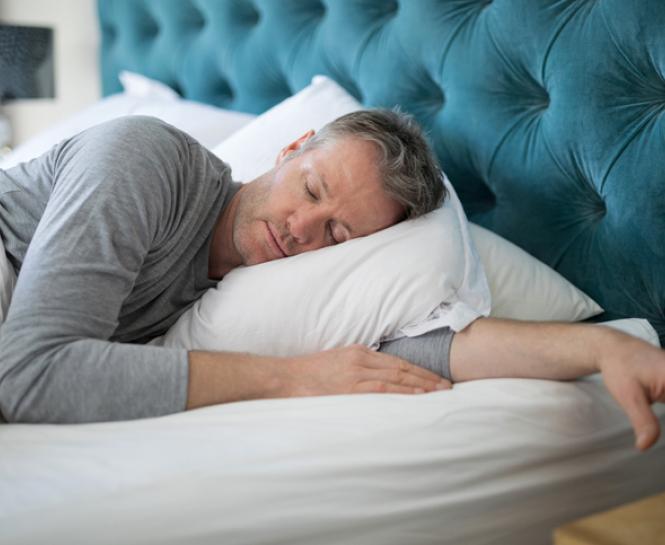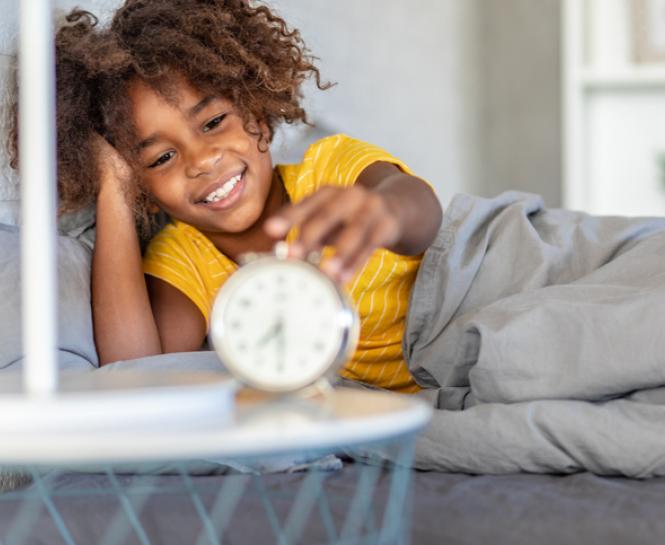Brendan Duffy, Catholic Health Director of Sleep Services, shares tips for improved sleep during the holiday season.
Bedtime rituals
Check the heat. We tend to turn up the heat during colder months when temperatures drop. That can lead to bedrooms being too warm at night. Good sleep includes a cool temperature, dark room and quiet environment.
Make a list or worry journal. Written lists help to free our minds from worrying about our daily or next-day concerns. Do this a few hours before bed to unload all the everyday items that burden you. Use the time before bed to practice gratefulness and fill your thoughts with positive images of what makes you grateful.
Slow and deliberate breathing. Help reduce your stress level by practicing 4-7-8 slow breathing if you experience difficulty falling or staying asleep. Breathe slowly for 4 seconds, hold it for 7 seconds, and then breathe slowly for 8 seconds. Keep in mind: 4-7-8.
Electronics. Keep electronics and bright lights out of your bedroom. We need to sleep in dark sleep quarters to not suppress our melatonin due to exposure to bright lights—especially blue light. Keep TVs and cell phones out of the bedroom. Recharge yourself with sleep with the same purpose and attention we extend to recharging our phones fully every night.
Consistency
Holiday seasons often mean parties, family visits and shopping that can interfere with our set wake and sleep schedule. Try to be consistent with your schedule. But, if you can’t be consistent due to an office party or family gathering, “bank” extra sleep in the nights before, so you have a reserve for those days that empty your sleep tank.
Try and follow the 80% rule: get to bed and wake up within the same hourly time range for both sleep and wake up at least 80% of the week.
Diet
Alcohol. It fragments your sleep and causes you to wake up often in the second part of the night as the alcohol wears off. It also causes extra trips to the bathroom and dehydration. Alcohol relaxes the muscle tone in your airway, which causes snoring and increases the risk of apnea.
Heavy or spicy meals. Sleep is disrupted by meals that cause you to digest instead of rest. Try to have your meals earlier in the evening to allow proper rest to your body at bedtime. It’s tough for your body to multitask and repair daily damage when resources are diverted to digestion.
Traveling
Air travel. Prepare yourself if your trip involves time changes that cause jet lag. This type of travel disrupts your body’s clock, taking about one day for each time zone crossed to re-establish a circadian rhythm. It is easier to recover from traveling west than from traveling east, as staying up longer is easier than going to bed early.
Driving. Please don’t drive drowsy. It is as dangerous as drunk driving.
Sleeping in different locations. If sleeping in hotels or at a friend's or relative’s home over the holidays, bring familiar items such as a pillow, blanket and white noise machine. Lavender spray can help make the bedroom more familiar and calm your brain. If you use a CPAP device for your sleep apnea, use it even on vacation.
Shopping
No sale is worth your health. Although tempting, try and avoid those middle-of-the-night box store outings. It will disrupt your circadian rhythm and could lead to dangerous, drowsy driving. One night of lost sleep severely reduces your immune system and leaves you vulnerable to catching a cold or the flu.
Naps
Disrupted holiday schedules may make you feel the need to supplement missed nighttime sleep with naps. If so, try to nap early in the day to not disrupt your sleep urge at night. Keep naps to 30 or 90 minutes to avoid waking from your nap at other times. These may cause inertia since they are mid-cycle sleep stages. Ninety minutes allows for about one complete sleep cycle.
Get help for sleeping issues
- Do you snore?
- Do you stop breathing during the night?
- Do you wake up with headaches?
- Do you excessively sleep during the day?
- Have you gained weight recently?
A referral for a sleep consult is recommended if you answered "yes" to two or three of these questions.
If you snore or feel tired during the day, even after sufficient sleep quantity, or need several cups of coffee or soda to get through the day, you may have sleep apnea. Sleep apnea is when your airway collapses during sleep, and you stop breathing. It’s a burden to your cardiac and brain health and is associated with obesity, diabetes and high blood pressure. It also negatively impacts our immune system.
Or, perhaps you can’t fall asleep or stay asleep due to insomnia over several months.
Catholic Health sleep centers across Long Island are here to help, no matter your sleep issue.
Learn more about Catholic Health sleep services.
Call 866-MY-LI-DOC (866-695-4362) to find a Catholic Health physician near you.

